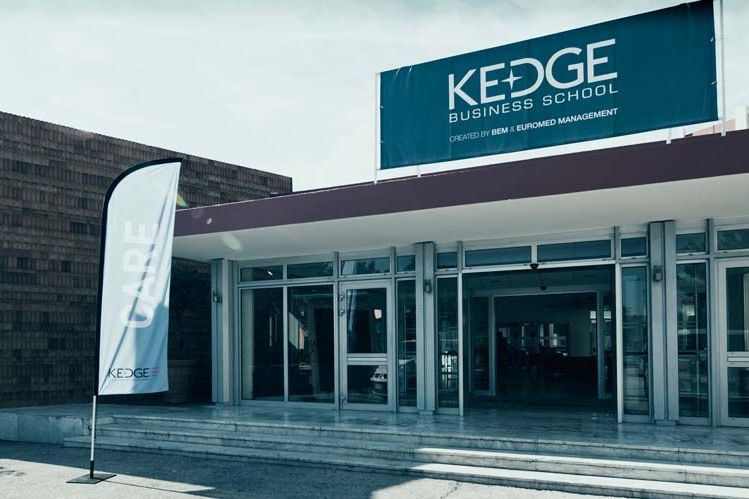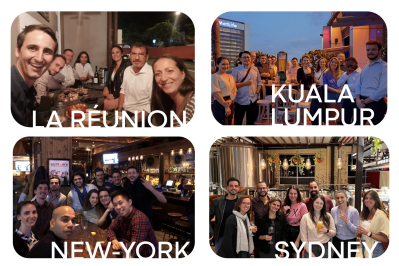News

KEDGE and AGIPI awarded the best Master's thesis on the theme of "Independent Work and New Forms of Entrepreneurship" and concluded the three years of research of the Chair
Three years ago, KEDGE and AGIPI created an "Independent Work and New Forms of Entrepreneurship" Chair. It aimed to give academic insight into the work of tomorrow.
To mark the end of these three years of work and research on the subject, KEDGE and AGIPI held a special event on Tuesday, 22 June, on the Paris campus. Members of the Chair gave speeches and the AGIPI-KEDGE prize for the best thesis was awarded. The occasion provided the opportunity to review the trends identified in independent work and new forms of entrepreneurship.
The prize for the best paper on independent work and new forms of entrepreneurship
The Chair's Scientific Director, Saïd Yami chaired the jury for the AGIPI-KEDGE thesis prize, which was made up of two KEDGE teacher-researchers and the Chair's AGIPI partners. This year, 12 papers from Master 2 students of the Grande Ecole Programme were received and considered by the jury.
Gaël Coulombel was chosen as the 2021 successful candidate for the Best 2020 Thesis on "To What Extent do the Shifts in the French Labour Society Challenge the Social Protection of Workers?"
The conclusion of three years of research on independent work and new forms of entrepreneurship
At the end of these three years of study, the AGIPI KEDGE research chair can point to three major trends that should lead to changes in work models:
- The growth of micro-entrepreneurship among young people
This is a real societal trend. Whether considered to be good or bad news, the facts are indisputable: the number of business start-ups in France steadily increased every year for the past 10 years. This upward trend is mainly due to micro-businesses, most of which are created by people under the age of 30. So it’s important to take note of what the younger generations find appealing about entrepreneurship (subjective to the individual), to the detriment of long-term, permanent, employment.
- The need for companies to change their management style.
Faced with this growing inclination among younger workers to reject traditional jobs, businesses need to rethink their management practices in order to appeal to the new generations, who tend to shun organisational models that are too hierarchical and controlling. The spirit of the moment is one of empowerment and autonomy, which companies can promote through intrapreneurship - the ability to become an entrepreneur of actions or projects within an already existing company.
- The need for social protection to be brought in line with new ways of working
Changes in working styles have a strong impact on social protection, which must also be redefined. The new hybrid and combined of ways of working (salaried employment, part-time work, slashing, freelancing, self-employment, etc.) require a rethinking of social protection, which have traditionally been based on a model of full-time, salaried employment. This is probably the main issue for social protection actors in the coming years. AGIPI has already made it an important focus of its work.






